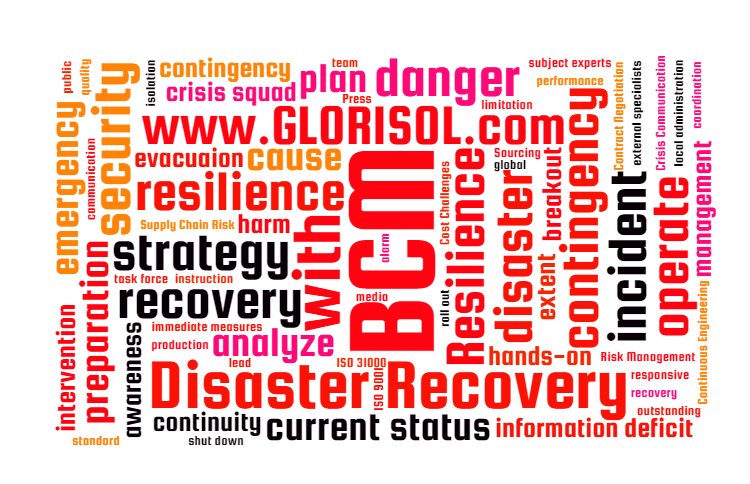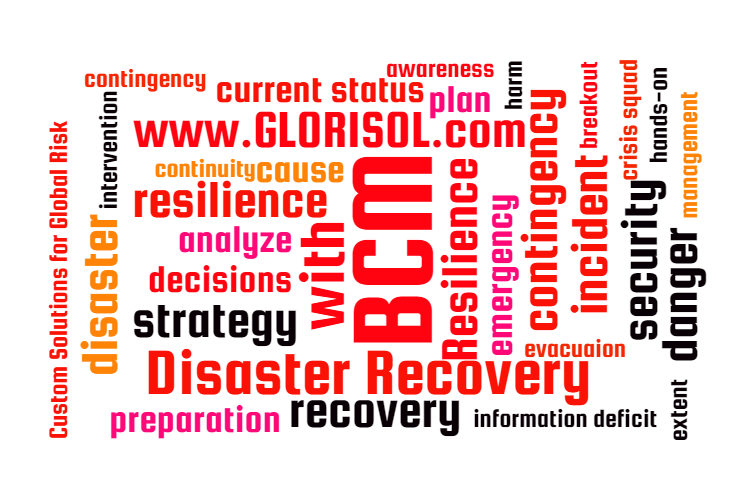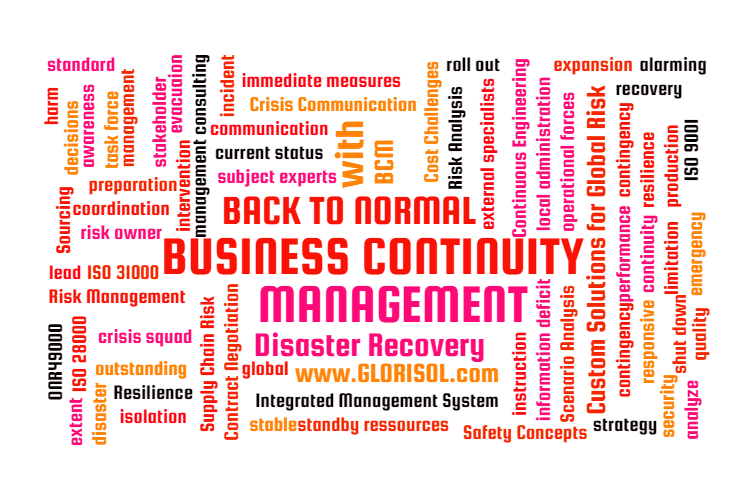Risk Management is not just about strategic risks and their containment; it also deals with specific threats and controlled counter-action of unexpected incidents or emergencies:
Business Continuity Management (BCM) is the preparation for structured combating of possible, sudden and unexpected disruptions. Such disruptions may affect the function of certain parts of the organization or the overall organization.
The goal of BCM is to overcome unforeseen situations with adequate responsiveness to the kind and severity of the incident. Pro-active preparation for functional disruptions and coordinated activities lead to the regaining of operational functionality and the return to 100% capability in foreseeable time frames.
In case of an incident, trained people, adequate facilities, information structures and communication equipment must be available. Procedures should be regularly rehearsed and optimized with practical improvements.
The concept of Continuity Management includes i.e. the alert process, the connection of the crisis team members among themselves, adequateness of rooms, crisis communication, reporting to senior management, discretionary powers and the authority to involve additional (possibly external) resources as well as production and order processing during the crisis situation.
Equally important is to grow full support within the organization through the understanding of the purposes and means of Continuity Management activities. In order to ensure this, training of (a) the members of the crisis team, (b) potential additional supporters of the crisis team, and (c) the overall organization is crucial.
Do you have questions or do you need support on Business Continuity Management? send an INQUIRY



